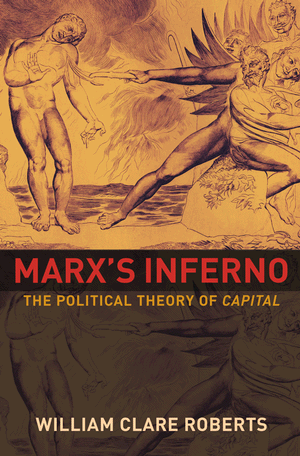To clarify, whatever Obama intended to say, the resulting debate has turned — as Kaus says — Marxist. The debate has evolved into a discussion of whether the cultural preferences of bitter Pennsylvanians stem from a lack of economic opportunity. To put the question in more stark Marxist terms — are Pennsylvanians’ cultural preferences (i.e., the superstructure) determined by economics? If so, then those cultural preferences will presumably shift if people become more economically secure.Publius goes on to argue that the same logic underlies the Bushies' war on Iraq: "the neocon vision shares some Marxist assumptions. Specifically, it too sees religion and radicalism as superstructure. Change what lies beneath and you’ll change what rests on top, or so the theory goes."
Any argument that produces the conclusion that the neocons are Marxists performs a reductio ad absurdum on itself. So where did this argument go wrong? I think it goes wrong as soon as it supposes that the determination of political and religious life by the economy is a Marxist position. The base/superstructure image deployed by Marx is, I would argue, taken over wholesale from the tradition of liberal political economy going back to Smith and Montesquieu.
The spread of material abundance along the vector of expanding markets is supposed to bring with it civilization, in the sense of non-violence, tolerance, and enlightened self-interest. You can find this thesis defended by Hume, by Kant, by Mill, by Constant--indeed by most every liberal since the birth of liberalism. Determination of the cultural and political superstructure by the economic base is precisely what "political economy" names.
Therefore, while there is a common thread linking Obama's comments (at least as they were received) and Bush's war strategy, it is the common thread of liberal political economy.
Marx's relation to this tradition is complicated (see the post below re: Malthus), but I don't want to deny that there is a powerful strand of Marxism that is consistent with political economy. Kaus mentions vulgar Marxism, and I'd be happy to pin this label on economic Marxism. Economic Marxism draws different lessons from the premise it shares with economic liberalism, but it does share this premise.
Nonetheless, Marx sub-titled Capital "A Critique of political Economy," and there is an equally robust strand of Marxism that takes of this anti-economistic challenge. I would note at least three important theses that differentiate this Marxism from the base-determines-superstructure model of political economy:
- The mode of production is not reducible to a mode of distribution. That is, the way we produce is prior to the economic questions focused on by political economy.
- The mode of production of capitalism is fundamentally revolutionary and disruptive. That is, the "base" is not a stable foundation upon which economic, political, and cultural institutions might arise. Rather, the mode of production constantly undermines and subsumes whatever seems to aspire to an external or independent existence. From beneath, it devours.
- The mode of production does not explain itself, but was brought into being and is continually maintained by extra-economic violence, what Marx calls "primitive accumulation." (On which, see this excellent review of There Will Be Blood by Unemployed Negativity.)
